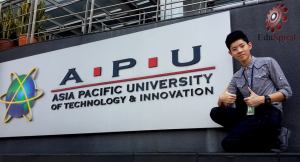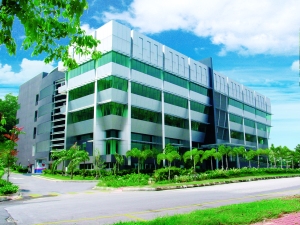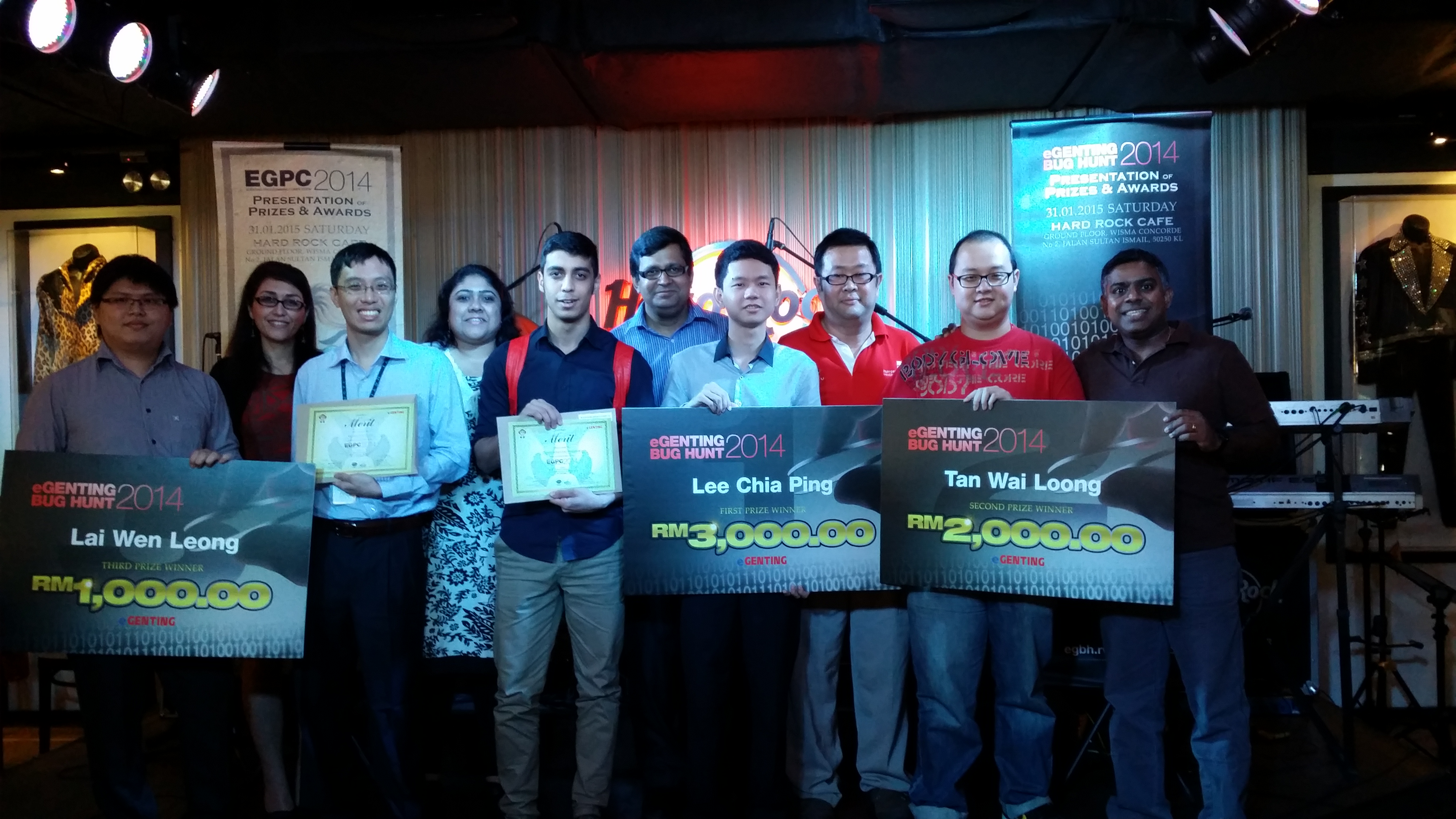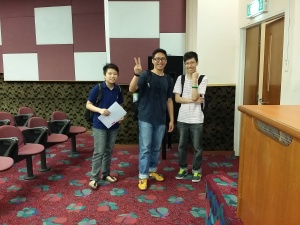By Charles F. Moreira
Malaysia's ICT job market outlook or more accurately ICT professionals' salary outlook has some encouraging ups and some depressing downs, as revealed by PIKOM's ICT Job Market Outlook in Malaysia of June 2013. The report was released at the PIKOM secretariat.
For those unfamiliar, with the name, PIKOM is the acronym for the National ICT Association of Malaysia, the largest ICT industry association in the country and the report is based upon figures from Jobstreet.com and analysed by KPMG.
Malaysia's ICT job market outlook or more accurately ICT professionals' salary outlook has some encouraging ups and some depressing downs, as revealed by PIKOM's ICT Job Market Outlook in Malaysia of June 2013. The report was released at the PIKOM secretariat.
For those unfamiliar, with the name, PIKOM is the acronym for the National ICT Association of Malaysia, the largest ICT industry association in the country and the report is based upon figures from Jobstreet.com and analysed by KPMG.
 |
| PIKOM Executive Director Ong Kian Yew and Chairman Woon Tai Hai with the ICT jobs report |
Getting down to the meat, the good news is that salaries of ICT professionals in Malaysia continue their uptrend from an average
monthly salary of RM4,184 in 2006 to RM6,784 in 2012 and is projected to average RM7,387 this year.
Another piece of good news is that employers plan to hire more in Q1 2013 over Q1 2012 in JobStreet's Job Outlook report, with 36% versus 23% saying they were expanding, hence hiring, whilst 4% compared to 9% were not hiring in the foreseeable future. 18% versus 25% said they would maintain their hiring rate, whilst those who said they would hire less or just for replacement dipped a tad to 42% from 43% between these two corresponding quarters.
By comparing job hiring sentiment over the years, PIKOM produced a Job Hiring Index Score which fell from 2.69 in Q1 2011 to 2.62 in Q1 2012 and them ramped up to 2.86 in Q1 2013.
Choose your job well in Malaysia
There are ICT professionals and ICT professionals, and based upon findings sourced from PayScale.com and PIKOM, information technology, project managements who are Java, HTML, SQL or Microsoft certified professionals are paid the most, with salaries ranging from RM4,667 to RM17,500, or RM9,700 average and RM7,100 median. At the bottom of the heap are HTML and Web designers who get from RM1,583 to RM,6,917, or RM3,692 average or RM2,773 median salary.
Choose your job well in Malaysia
There are ICT professionals and ICT professionals, and based upon findings sourced from PayScale.com and PIKOM, information technology, project managements who are Java, HTML, SQL or Microsoft certified professionals are paid the most, with salaries ranging from RM4,667 to RM17,500, or RM9,700 average and RM7,100 median. At the bottom of the heap are HTML and Web designers who get from RM1,583 to RM,6,917, or RM3,692 average or RM2,773 median salary.

- After I finished my SPM, I felt confused about my further study. Because of Eduspiral, I am able to pursue my studies at Asia Pacific University. Eduspiral, was so patient to answer all my questions and even brought me to visit the university when I went to KL alone. Jeremy Lee, APU scholarship student
Further details of pay by job function are in the graphic below and if terms such as "mean," "median," "percentile" sound confusing, we'll explain them towards the end.
Hot ICT jobs in Malaysia
JobStreet identified currently hot ICT jobs in the technical, applications and soft skills category. Technical jobs include software developers, programmers and engineers skilled in Java, C#, C++, .Net, SharePoint and web applications development, certified network & systems engineers and certified database administrators.
JobStreet identified currently hot ICT jobs in the technical, applications and soft skills category. Technical jobs include software developers, programmers and engineers skilled in Java, C#, C++, .Net, SharePoint and web applications development, certified network & systems engineers and certified database administrators.
In business applications, are required ICT professionals certified in SAP or ERP, IT audit, IT security, help desk analysts and in big data analytics. Soft skills are in areas of project management, IT consulting, business process improvement and quality improvement.
"All animals are equal" - err! not quite
Not all industries pay ICT professionals the same, so aspiring ICT professionals and fresh graduates should note that the oil, gas and petroleum industry not only pays amongst the highest but also have the fastest rising salaries for fresh ICT graduates and those with less than one year experience (entry-level ICT graduates), The weighted mean salary for such entry-level ICT graduates was RM2,775 in 2012, up 14.8% from RM2,418 in 2011. The spread of these salaries was RM2,300, RM2,800 and RM3,200 in the 25%, 50% and 75% percentiles respectively in 2012.
Not all industries pay ICT professionals the same, so aspiring ICT professionals and fresh graduates should note that the oil, gas and petroleum industry not only pays amongst the highest but also have the fastest rising salaries for fresh ICT graduates and those with less than one year experience (entry-level ICT graduates), The weighted mean salary for such entry-level ICT graduates was RM2,775 in 2012, up 14.8% from RM2,418 in 2011. The spread of these salaries was RM2,300, RM2,800 and RM3,200 in the 25%, 50% and 75% percentiles respectively in 2012.
Top highest paying jobs in ICT in Malaysia
The highest paying for entry-level ICT graduates in Malaysia is the semiconductor and wafer fabrication industry, which paid RM3,280 in both

- I had wanted to go to another university near my house for IT after my A-Levels. After consulting EduSpiral, I realised that I should choose the best university for IT so that I can gain the necessary knowledge and skills for a successful career in this competitive field.
Kah Jun, Software Engineering at APU
2012 and 2011, or no increase and this figure was the same in all of the three percentiles. ICT graduates can look forward to a lifetime career in this industry, unless it decides to move operations to China or Timbuktu, but then again they'd most probably have to option to follow.
Other zero-growth salary sectors was the automotive, heavy industry and machinery sector which paid RM2,175 in both years, manufacturing (RM2,508)
Next fastest rising pay is in the electrical and electronics industry where entry level weighted mean salaries rose 13.5% from RM2,063 in 2011 to RM2,343 in 2012, though here too, the percentile salary spread was quite wide at RM1,950, RM2,301 and RM2,800 respectively. Next down is construction & building where weighted mean salaries rose 12.4% from RM1,800 to RM2,023 in 2011 and 2012 respectively, with a percentile spread of RM1,715, RM1,800 and RM2,775 respectively.
Entry level salaries in the banking sector are not only competitive but also fast rising, with pay for ICT graduates rising 9% from RM2,225 to RM2,425 in 2011 and 2012 respectively, with a percentile spread of RM2,000, RM2,500 and RM2,700 respectively.
Another lucrative sector is the computer and IT hardware industry, where weighted mean salary rose 7% from RM2,213 to RM2,368 in 2011 and 2012 respectively, with a percentile spread of RM2,000, RM2,400 and RM2,670 respectively. Whilst the computer and IT software sector paid slightly more at RM2,450 in 2012, it rose by a rather sedate 2.1% from RM2,400 in 2011, though the percentile spread was wider at RM2,000, RM2,500 and RM2,800 respectively.
Pay in the science & technology, aerospace and biotechnology industries was pretty good and fast growing too, at a weighted
mean of RM2,500 up 6.4% from RM2,350 between those two year, enter-level weighted mean salary rose 5.8% from RM2,000 to RM2,115, with a fairly wide percentile spread of RM1,900, RM2,030 and RM2,500 respectively.
The lowest paying amongst the 20 sectors is wholesale, retail & shipping which paid RM1,925 in 2012 but it rose at a pretty impressive 6.9% from RM1,800 in 2011, though the percentile spread in 2012 was RM1,500, RM1,950 and RM2,300 respectively.
Entry-level ICT graduates might want to avoid the transport, storage, freight and shipping sector where mean weighted salary dropped by 1.5% from RM2,284 in 2011 to RM2,250 in 2012, with a pretty wide percentile spread of RM1,600, RM2,300 and RM2,800 respectively.
Pay in the printing and publishing sector isn't too bad at RM2,300 in 2012, though it rose at a fairly sedate 3.4% from RM2,225 in 2011. However, the percentile spread was RM2,000, RM2,000 and RM3.200, which suggests its quite low-pay for the majority of entry-level ICT graduates. However, the report does not say whether these ICT graduates write about IT, are graphics designers, animators, web designers, systems administrators or support staff.
Top five highest paying jobs in Malaysia
Overall, the top five highest paying industries in Malaysia in 2012 for entry-level ICT graduates were semiconductor & wafer fabrication,
Overall, the top five highest paying industries in Malaysia in 2012 for entry-level ICT graduates were semiconductor & wafer fabrication,
RM3,280; oil, gas and petroleum, RM2,775; science & technology, aerospace and biotechnology, RM2,500; computer & IT software, RM2,450; and banking, RM2,425.
However, computer & IT software dropped out of the top-5 beyond one-year working experience as the ICT professional rises through junior executive (1-4 years experience), senior executive (5 and more years), middle management and senior management. ICT professionals in senior management in the automotive, heavy industry and machinery sector are paid the most at RM17,438 per month, followed by computer & IT hardware (RM17,400), oil, gas & petroleum RM16,521, manufacturing RM14,150 and banking RM13,961.
The electrical and electronics industry tops the list at RM14,091 for ICT professionals in middle management, followed by semiconductor & wafer fab (RM11,183), oil, gas & petroleum (RM10,505, science & technology, aerospace & biotechnology (RM10,175 and wholesale, retail & trading (RM9,409).
Senior executives in oil, gas & petroleum top the list at RM7,280, followed by chemical (RM7,107), telecommunication (RM6,675), science & technology, aerospace & biotechnology (RM6,500) and consulting - business & technical (RM5,879). Junior executives in the chemical industry top the list at RM5,215, followed by oil, gas & petroleum (RM3,675), semiconductor &
wafer fab (RM3,653), automotive, heavy industry & machinery (RM3,563) and banking (RM3,475).
Across all positions oil, gas & petroleum tops the list at RM8,316 on average, followed by automotive, heavy industry & machinery (RM7,289), science & technology, aerospace & biotechnology (RM7,259), telecommunication (RM7,099) and services (RM7,034).
Producers versus users
Seemingly contradictory to the differences in salary for ICT professionals above, Jobstreet and PIKOM show marginal difference between salaries earned by ICT professionals in ICT producer and ICT user industries in 2012 as in 2011.
Seemingly contradictory to the differences in salary for ICT professionals above, Jobstreet and PIKOM show marginal difference between salaries earned by ICT professionals in ICT producer and ICT user industries in 2012 as in 2011.
A junior executive with an an ICT producer earns RM3,236 or a mere RM20 more than the RM3,216 which his counterpart in an ICT user industry earns, whilst senior managers with and ICT producer and and ICT user earn RM13,735 and RM13,364 or a difference of RM370. Average monthly salary with ICT producers and ICT users were RM6,355 and RM5,903 respectively.
Size matters
Whilst this won't please start-up tech-entrepreneurs, but the sad fact of life is that ICT professionals are better off working for a
Size matters
Whilst this won't please start-up tech-entrepreneurs, but the sad fact of life is that ICT professionals are better off working for a
multinational or large corporation rather than a start-up or small company, according to PayScale.com and PIKOM, which shows that a large corporation with over 2,000 staff pays ICT professionals RM6,363 median monthly salary, or 1.88 times the RM3,390 median salary a company with one to nine employees pays. The smallest company with one to nine staff is used as a baseline with a multiplier of 1 shown in red, and as company size grows the more it pays its IT professionals.
And where you live too
Where you live and work also is a factor, and ICT professionals who work in Kuala Lumpur are the best paid, with RM5,092 median monthly salary, whilst their counterparts in Ipoh are the lowest paid at RM2,906 median monthly salary. However, the report does not mention cost of living differences between these various towns across Malaysia, it's possible that the IT professional in Ipoh is actually better off financially than his counterpart in Kuala Lumpur.
Where you live and work also is a factor, and ICT professionals who work in Kuala Lumpur are the best paid, with RM5,092 median monthly salary, whilst their counterparts in Ipoh are the lowest paid at RM2,906 median monthly salary. However, the report does not mention cost of living differences between these various towns across Malaysia, it's possible that the IT professional in Ipoh is actually better off financially than his counterpart in Kuala Lumpur.
Gender inequality
Also, if male ICT professionals earn 35% more than their female counterparts, or RM5,201 versus RM3,855 median monthly salary.
Also, if male ICT professionals earn 35% more than their female counterparts, or RM5,201 versus RM3,855 median monthly salary.
Junior execs preferred
In February, 2013, Jobstreet.com surveyed 227 of its clients, managers and senior managers across various industries in Malaysia and 52% said that they were looking to hire people in junior-level (with less than four years experience) in 2013, followed by 24% who were looking for supervisors and specialists such as accountants and engineers, whilst 13% said they were looking for fresh graduates. Human resources managers complained about difficulties to employ fresh graduates who demanded high may despite having no work experience.
In February, 2013, Jobstreet.com surveyed 227 of its clients, managers and senior managers across various industries in Malaysia and 52% said that they were looking to hire people in junior-level (with less than four years experience) in 2013, followed by 24% who were looking for supervisors and specialists such as accountants and engineers, whilst 13% said they were looking for fresh graduates. Human resources managers complained about difficulties to employ fresh graduates who demanded high may despite having no work experience.
However, fresh graduates are marginally better off than managers and assistant managers of whom 11% said they needed, whilst only 0.9% wanted directors and vice-presidents and none wanted top management such as presidents, CEOs and general managers, though perhaps those kinds of guys are more likely head hunted.
So-so confidence
Anyway, the Jobstreet.com Employment Confidence Index dropped from a high of 51.6 in 2011 to 48.8 in 2012 and rose slightly to 49.1 in 2013. This index ranges from 0 (zero) which is very poor to 100 which is very good and it has fluctuated within two and three points about 50 since 2006, after a low of 33.6 in 2003.
Anyway, the Jobstreet.com Employment Confidence Index dropped from a high of 51.6 in 2011 to 48.8 in 2012 and rose slightly to 49.1 in 2013. This index ranges from 0 (zero) which is very poor to 100 which is very good and it has fluctuated within two and three points about 50 since 2006, after a low of 33.6 in 2003.
It should be noted that the two sets of Jobstreet findings above refer to all kinds of jobs, not just ICT.
How does Malaysia compare?
Salaries for ICT professionals in Malaysia came 11th in purchasing power parity (ppp) terms, behind the United States, Australia, Hong Kong, Vietnam, New Zealand, Singapore, Canada, China, the United Kingdom and Thailand, based upon PayScale.com and PIKOM figures.
Salaries for ICT professionals in Malaysia came 11th in purchasing power parity (ppp) terms, behind the United States, Australia, Hong Kong, Vietnam, New Zealand, Singapore, Canada, China, the United Kingdom and Thailand, based upon PayScale.com and PIKOM figures.
PIKOM took 2012 median salary figures from PayScale.com, for 14 countries, tallied in U.S. dollars, and the average salary for
each country was compiled after taking into consideration IT skills, company size and years of experience. It then expressed them in two tables, one based on raw income and the other in ppp terms, which takes account of cost of living, inflation and other factors in these different countries.
It then assigned Malaysia a scaling factor of 1 for both raw and ppp-adjusted salaries, and whilst ICT professionals in Australia earned 3.75 times their counterparts in Malaysia in raw terms, they only earned 1.9 times in pp terms. The U.S. led with 2.08 times Malaysia in ppp terms but at 3.24 times it came second after Australia in raw terms.
Rather interestingly, raw salaries in Vietnam are only 1.2 times in Malaysia but are 1.87 times more in ppp terms. It's believed that this could be due to a shortage of ICT talent there as its economy grows.
Singapore was 2.26 and 1.84 times raw and ppp respectively, though rather interestingly, both raw and ppp salaries in Thailand were 1.36 times those in Malaysia. This too could reflect growing demand for ICT professionals in Thailand.
Rather surprisingly, ICT professionals in India earn less than in Malaysia at 0.49 and 0.66 times in raw and ppp terms respectively, though this is believed to be due to widely ranging salaries between large cities such as New Delhi, Mumbai, Bengaluru and Chennai on the one hand and the smaller cities and towns across that vast country. Behind India in ppp terms are Indonesia and the Philippines.
Mean, median and percentiles
In statistics, the mean, median and mode are different measures of a typical central value of a probability distribution. For
In statistics, the mean, median and mode are different measures of a typical central value of a probability distribution. For
example a company has nine employees which it pays a salary of RM2,000, RM2,500, RM2,500, RM2,500, RM3,000, RM3,500, RM4,000. RM4,500, RM10,000 and RM12,500.
The mean is found by adding up all nine salaries and dividing the sum by nine which gives RM5,222, which is more than what the seventh employee gets due to the five figure salaries of the eight and ninth employees, so isn't an accurate representation of what most of the employees in this company earn.
The mean is a more suitable measure of a typical value with figures such as the number of students who got a particular score in an examination, where the distribution is closer to a symmetrical bell curve, since usually, most students will achieve scores in between the best and poorest students, unlike with the above example of salaries, where the mean tends to be skewed towards the minority of employees earning five figure pay.
On the other hand, the median is the middle value of the salary of each employee laid out in ascending order from left to right, and in this case would be the salary of the fifth employee - i.e. RM3,000, which is a closer indication of what most employees in the company earn. If this company instead has an even number of employees, such as 10, the median is the mean of the two salaries in the middle of the 10 - i.e. the mean of the salaries of the fifth and sixth employee.
The mode is the most frequently occurring value and amongst these nine employees, the mode salary is RM2,500 which three employees each earn, since it is the most frequent number.
In a perfectly symmetrical distribution, the mean, median and mode should line up but more often than not, their positions more like in the figure below. With a large number of data sets - i.e. salaries, the mode salary could be closer to what most employees earn but it's not mentioned here.
However, that the median salaries here are less than the mean salary, strongly suggests that the typical salary of ICT professionals here is lower than the mean salary mentioned and a closer to what these ICT professionals earn.
A percentile is the value below which a given percentage of observations or group of observations fall. So a 25%, 50% and 75% percentiles are the values below which one quarter, half and three-quarters of the above salaries fall.
EduSpiral Consultant Services- Your Personal Online Education Advisor
Established since 2009, EduSpiral Consultant Services helps provide information and counselling on courses and universities in Malaysia, Singapore and Ireland. EduSpiral Consultant Services also represents MDIS Singapore and Hong Kong Polytechnic University.
EduSpiral Consultant Services represents the best colleges and universities in Malaysia offering a wide range of choices for students to choose from. These colleges and universities offer value for money in the quality of education and excellent facilities that you get.
These universities and colleges are chosen by EduSpiral because they represent the best in their fields in Malaysia and affordable. EduSpiral provides in-depth information and counseling on their courses so that students are able to make the right choice.
If you are still not sure what to study, please contact us and we will send you a free EduSpiral Career Assessment Form.
Please contact us for more details.
- Whatsapp: +601111408838
- Wechat/Line: EduSpiral88
- Instagram: www.instagram.com/eduspiral
- Foursquare: www.foursquare.com/eduspiral
- Youtube: www.youtube.com/eduspiral
- Follow EduSpiral: www.twitter.com/eduspiral
- Be my friend: www.facebook.com/eduspiral1
- Like EduSpiral: www.facebook.com/eduspiralcs
- Message me: info@eduspiral.com
- Website: www.eduspiral.com










No comments:
Post a Comment
Please leave your comments and questions